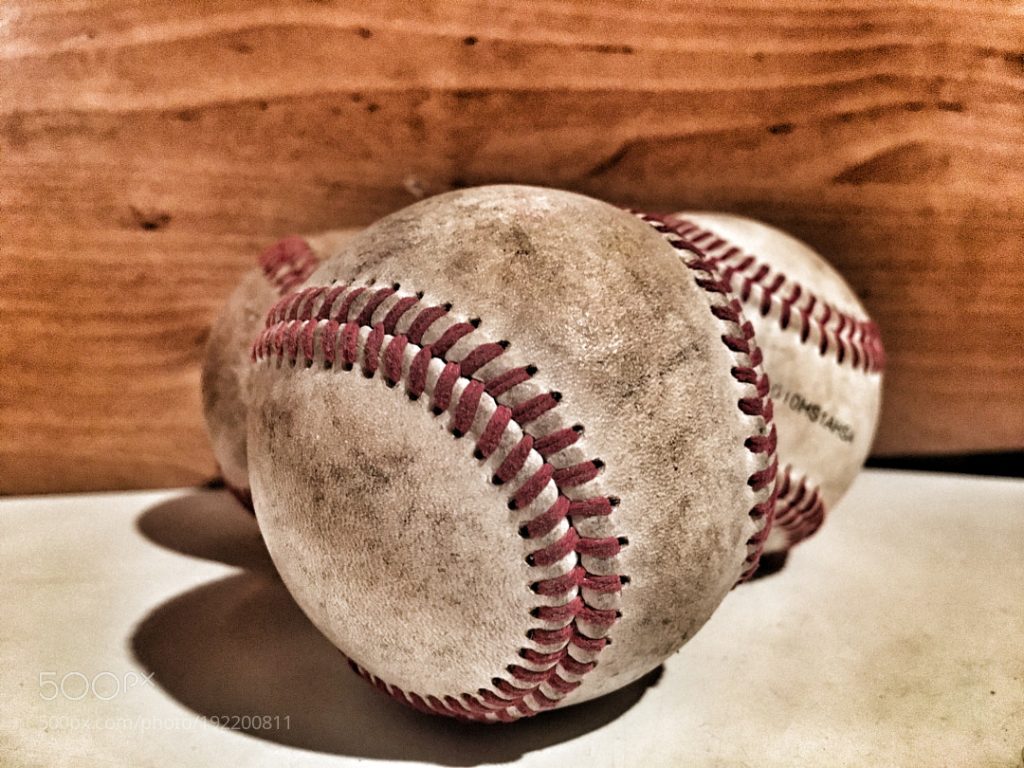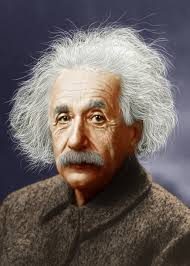Moses “Fleet” Walker was born on October 7, 1857 in Mount Pleasant, Ohio. His parents were Reverend Moses W. Walker, M.D. and Caroline Maria Simpson. Moses was the fifth oldest out of seven children. His family nicknamed him “Fleet” growing up in order to distinguish him from his father.1 Walker and the rest of his family were not considered an ordinary African American family. Due to his father being both a reverend and a physician, the Walkers were considered “free and educated blacks, with upper middle class economic advantages.”2 This would become one of the key reasons why Fleet never really witnessed racism in his childhood years.
The segregation of blacks from whites was the law in the former Confederate States. However, Walker grew up in Ohio, where segregation was practiced more informally. African American people were not allowed certain jobs and were not allowed to live in certain areas. However, Moses did not witness much of this growing up, because of his fathers’ status in society.3
Since Fleets’ father was a physician, he did not have to work growing up. This allowed him time to focus on school and on playing baseball in his free time. Fleet was a natural athlete and very intelligent. In school, he was expected to keep up his good grades and attend every day. He was introduced to baseball when he moved to Steubenville by a group of veterans from the Civil War period, who had actually helped Abner Doubleday in forming the game of baseball.4

When Fleet was ten years old, the National Association of Base Ball Players was created to form the very first baseball league. On December 11, 1867, 237 delegates met in Philadelphia to propose rules, salaries, and other considerations for their league.5 One of the major issues they had to deal with was whether they would allow multiple races into the league. Since this league was created in the North, they believed that the color line was necessary in order to have Southern States willing to join in on the league as well. Therefore, in the first set of rules for the league, their ruling read:
It is not presumed by your committee that any club who has applied are composed of persons of color or any portion of them and the recommendations of your committee in your report are based upon this view and they unanimously report against the admission of any club which may be composed of one of none colored person.6
Four years after this committee was created it was replaced by the National Association of Professional Baseball Players. They took out this rule and simply stated that it was a “gentlemen’s agreement” that blacks were not allowed in the league. As a child, Fleet was unaware that African Americans were not allowed in the League, as this became his childhood dream to turn baseball into a career.7
Growing up, Fleet played in integrated baseball teams, and he played the usual pick-up games in the neighborhood with his friends. When Fleet turned twenty in 1878, he and his family moved to Oberlin, Ohio due to a job promotion his father received. Here Moses started college at Oberlin College.8 When he started, there was no collegiate sports at Oberlin. However, in Fleet’s third year at Oberlin, it became the very first school to form a collegiate baseball program. Fleet’s first season was a success, and he earned recognition as “one of the best all-around college athletes in the land.”9 After his first season, Fleet left Oberlin to go to the University of Michigan to pursue a law degree and continue his baseball career there as a catcher. At Michigan, he and his brother both played for the team, but Fleet did exceptionally well. Fleet went on to play two years at the University of Michigan. He never ended up graduating because, at age twenty-five, Fleet was offered a professional baseball contract to play for the Toledo Baseball Club.10 At this time, in 1884, the league consisted of eight clubs in the Northwestern League. He accepted the contract and was the second player drafted into the league. Fleet made his major-league debut on May 5, 1884, and did outstanding in his first season. He led the team to win the very first league championship. With the creation of the league, they started to play teams from other parts of the country, and came up with what is now known as the World Series. Fleet and the rest of the Toledo Baseball Club were supposed to play the Chicago White Stockings for the championship. However, the manager of the White Stockings Adrian Anson refused to play if Fleet walked onto the field. This was the very first time Walker experienced racism in the Major Leagues.

Fleet was a catcher, and because he was African American, he was not allowed to catch with a glove, face mask, or chest protector. Reports said that Fleet’s hands were always blistered and bloody after games.11 This was one of many obstacles Fleet faced due to his race. Throughout his baseball career, Fleet was the target of fan abuse and from opposing players. Fans would throw food and other items, spit, and say harsh things to him while he would play. He also received threats from certain baseball clubs saying that if Fleet stepped foot in the stadium with a uniform on, men would be there ready to mob him. Due to the constant injuries from playing with no gear, Fleet never ended up playing in these cities.12
Although Fleet led the leagues, after having so many injuries, the Toledo Baseball Club released Walker in 1885. He then moved on to play for a minor league team in Cleveland. This team soon became banned because they broke the “blue law” of playing games on Sundays. Walker then moved to play in Waterbury, Connecticut in the Eastern Leagues. After playing one season, he moved again due to teammates not being cooperative with Fleet because of his race, to a team in Newark, New Jersey.13 On this team, he was signed with another African American player named George Stoney. After playing a season of sixty-nine games together, many fans and workers of the league started to make claims that blacks should be allowed to play everywhere. “They make the teams stronger and they bring in more business.”14 This was not the thinking of everyone, however, as the racism against Fleet continued. In a game against Chicago, the opposing players all walked off the field, leaving the game when they saw Fleet and Stoney warming up to play. Also, some of Fleet’s white teammates refused to take team photos if Fleet and Stoney were going to be in them. All the white pitchers on this team never listened to Fleet when he called pitches and threw whatever they wanted just to make Fleet look bad. This became a bit overwhelming, and many coaches in the league began to push to ban African Americans; and in 1885, they were all moved to an international league club in Syracuse. Fleet became the last known African American to play for the league in Syracuse. Blacks were no longer allowed in Major league clubs and had to be recruited into a minor-league team. Fleet was allowed to play for a minor-league club in Oconto, Wisconsin until his retirement in 1891.

Once retired, Fleet decided to buy a house in Syracuse to try and find work. Although he was very well educated, well known, and the son of a physician, the only work he could find was as a railroad worker. This really wasn’t how Fleet envisioned living out his life after baseball, but it was the only choice he had. In Syracuse, Fleet still experienced racism, both at work and around his neighborhood. On April 9, 1891, Fleet was having a drink after work in his neighborhood, when a white man approached him asking what he was doing in such a nice neighborhood and why he wasn’t out working somewhere. When Fleet ignored the man, he threw a rock at him and lunged at Fleet in attempt to assault him. In self-defense Fleet stabbed the man, killing him. Two months later all charges were dropped against Fleet, and he then moved back to Steubenville, Ohio.15 He then spent the remainder of his life managing an opera house with his brother before passing away on May 11, 1924 at the age of sixty-six.16
Fleet lived out the rest of his life with his family and away from a baseball field. Although Fleet is the very first African American baseball player and catcher, he is not really recognized as such because he played when the leagues were first forming in a time now called the “dead period.” This is the reason why Jackie Robinson is said to be the first African American in what is now called “modern baseball.” However, Fleet has been recognized in the Hall of Fame for his efforts in starting the league for players today. Moses “Fleet” Walker is very strong to have played as long as he did despite the racism he experienced throughout his career. He paved the way for players like Jackie Robinson and all that came after him to play in Major League Baseball.
- David W. Zang, Fleet Walker’s divided heart: The life of Baseball’s First Black Major Leaguer (Lincoln: University of Nebraska Press, 1998), 169. ↵
- Nudie E. Williams, “Footnote to Trivia: Moses Fleetwood Walker and the All-American Dream,” Journal of American Culture vol.11 (1988): 65. ↵
- Edward R. Lee, “Moses Fleetwood Walker,” Blackfax vol.9 (1999): 37. ↵
- Nudie E. Williams, “Footnote to Trivia: Moses Fleetwood Walker and the All-American Dream,” Journal of American Culture vol.11 (1988): 66. ↵
- Nudie E. Williams, “Footnote to Trivia: Moses Fleetwood Walker and the All-American Dream,” Journal of American Culture vol.11 (1988): 65-72. ↵
- Nudie E. Williams, “Footnote to Trivia: Moses Fleetwood Walker and the All-American Dream,” Journal of American Culture (2001): 65-72. ↵
- Nudie E. Williams, “Footnote to Trivia: Moses Fleetwood Walker and the All-American Dream,” Journal of American Culture vol.11 (1988): 66. ↵
- David W. Zang, Fleet Walker’s divided heart: The life of Baseball’s First Black Major Leaguer (Lincoln: University of Nebraska Press, 1998), 169. ↵
- Nudie E. Williams, “Footnote to Trivia: Moses Fleetwood Walker and the All-American Dream,” Journal of American Culture vol.11 (1988): 67. ↵
- Edward R. Lee, “Moses Fleetwood Walker,” Blackfax vol.9 (1999): 37. ↵
- Nudie E. Williams, “Footnote to Trivia: Moses Fleetwood Walker and the All-American Dream,” Journal of American Culture vol.11 (1988): 67. ↵
- Nudie E. Williams, “Footnote to Trivia: Moses Fleetwood Walker and the All-American Dream,” Journal of American Culture vol.11 (1988): 67. ↵
- David W. Zang, Fleet Walker’s divided heart: The life of Baseball’s First Black Major Leaguer (Lincoln: University of Nebraska Press, 1998), 169. ↵
- Nudie E. Williams, “Footnote to Trivia: Moses Fleetwood Walker and the All-American Dream,” Journal of American Culture vol.11 (1988): 68. ↵
- Edward R. Lee, “Moses Fleetwood Walker,” Blackfax vol.9 (1999): 37. ↵
- David W. Zang, Fleet Walker’s divided heart: The life of Baseball’s First Black Major Leaguer (Lincoln: University of Nebraska Press, 1998), 169. ↵



107 comments
Kensley Dieckow
This article was really interesting because like most people I was I taught that Jackie Robinson was the first African American to play major league baseball. Fleet really did endure awful amounts of racism during his career and its sad the he still isnt given the title that he deserves. I also found it interesting that because of his fathers societal status he didn’t experience racism until playing baseball professionally.
Luis Molina Lucio
This article is just shocking and I can relate to the passion he felt for his sport (baseball) which I feel for my sport (soccer). The fact that Fleet was willing to play with just his bare hands is crazy but awesome. I have caught a baseball with no glove and even if it is going slow it still hurts because of how hard it is so I can imagine the pain he was in but was willing to go through it to follow his dream of baseball. The way this article is formulated really allowed me to analyze how he started as a kid that even if he was a bit more privileged he ultimately at the end also had to suffer the injustices in America against minorities. I was able to read this article and not only understand it but also was engaged from begging to end with Fleet’s life.
Anissa Navarro
This article had shed some important light on a person who had such an impact on the sport many love today. Before reading this article I had never known that there were more people who had stood up to racism in baseball, I had never knew the story of Fleet. I was able to learn more about the beginning of baseball and those that started paving a path for others.
Natalia Ramirez
Thank you for this interesting article on Moses Walker. It is sad to read these stories people of color faced. Although he faced a lot of discrimination while playing the sport he loved, he still kept playing and continued to look for other leagues to play in after every obstacle he faced. He is definitely brave and an important historical figure that fought for equal rights.
Gabriella Parra
I had never really heard of the origins of baseball, so this was a super interesting story. I’m glad you threw some baseball history into the article so that Fleet’s story really made sense. I’m curious about what the thought process was behind withholding protective gear from African American baseball players. A lot of racist acts from this time usually had a Darwinist twist, but this one just seems outright horrible.
Phylisha Liscano
Hello, Rebekah. I was delighted to have the chance to read your post. Fleet was a bold man for continuing to play a sport he enjoyed. It’s a pity that others had taken baseball’s pleasure out of it. No matter what, he kept pressing forward and refused to be swayed by racism. That kind of treatment wears you down eventually, and I congratulate him for stepping back in a mature manner. Overall, a fantastic and fascinating article.
Briana Gonzalez
The narrative really kept me reading to know what was going to happen. It made me think if he going to be the first player to be accepted to play baseball. The more I read it shocks me how the opposing player or some players on his team still refuse him because of his color. Even when he moved on and retired he still experiences racism but he will always be known to make a future hall of fame who pass through the hate of others.
Erika Longoria
This article did a great job in providing and explaining all of Fleet’s background. It shows that no matter how great he was in playing baseball, the racism and discrimination towards blacks outweighed his talent and didn’t allow for him to play. Many people think of Jackie Robinson being the first African American in a Major league, but this article proves otherwise. It brings light to Fleets story and the struggles he went through during his career, even though he didn’t completely achieve his dream.
Dominique Rodriguez
this was a very interesting because i never heard of this person until now. i did not know he was the first African American to join a baseball league. i new about Jackie Robinson was the first African American to also join a baseball league. this is interesting people wouldn’t speak about fleet. its also interesting how he had never grew up never experienced racism. for his father to be in the high class its very not what i expected.
Eliza Merrion
I really enjoyed this article and did not know much about the Fleet story. I thought you did a really good job of grabbing your reader’s attention and guiding us through Fleet’s baseball journey. I also enjoyed how you connected his story to Jackie Robinson and explained how he paved the way for him, as well as why Fleet wasn’t recognized in the hall of fame despite the advancements, he made for African American’s in major league baseball.